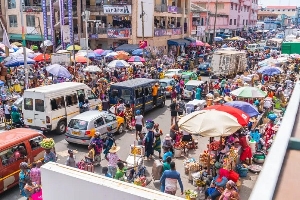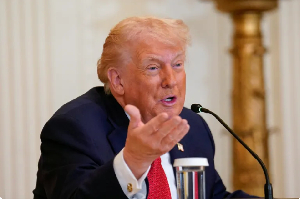The Institute of Statistical Social and Economic Research (ISSER) of the University of Ghana has called for a review of the Special Drawing Rights (SDRs) allocation framework.
The SDRs is an international reserve asset created by the IMF to supplement the official reserves of its member countries.
ISSER proposed that allocations under SDRs, an international reserve asset created by the IMF to supplement the official reserves of its member countries, be made sensitive to countries’ needs and region-specific shocks, potentially providing significant relief to many countries in the global south, including Ghana.
This was brought to light at the SDRs Financing in Ghana’s Economic Recovery research policy brief presentation forum held at the University of Ghana, Accra.
The proposal is a component of ISSER’s SDR policy reform, aimed at garnering support from the international community, particularly multilateral agencies. It suggests that unused SDRs from developed countries could be redirected in a more favourable manner to support developing countries in need.
Aside the rechannelling of unused SDRs to countries who need them, the research also proposed other key SDR allocations policy reforms including; revisions of how SDR allocations are made and integration of region-specific shocks.
It further highlighted crucial domestic reforms such as intensification of domestic revenue mobilisation, implementation of prudent expenditure measures and the elimination of political pride and propaganda regarding going to the IMF.
Research fellow at ISSER, and speaker at the forum, Dr. Richmond Atta-Ankomah, while calling for a departure from borrowing from the international capital market and multilateral arrangements which have become the main sources for external funds, advocated that a decision by the country to prioritise the SDRs would significantly impact its economic and fiscal position as it is a relatively cheaper alternative source of finance.
“The current SDR rate is about 4 percent which is substantially cheaper than the 7 to 11 percent charged on Ghana’s Eurobond. This makes it a valuable option. If we are able to access it then we will be able to get cheap financing for development to do a lot of the projects that we do not have to go to the international credit market where the interest rates are very high compared to what we can get on SDR. Currently the IMF has a framework called the poverty tracks funds that you can even get loan at interest rate as low as zero percent.
“So it is important that we explore these options to help with our development financing rather than fall on very expensive international market loans and credits which we have to service and which can lead to a lot of imbalances in the system,” he added.
He, however, noted that to successfully leverage SDRs financing for sustained growth, is imperative that the country strengthens it internal mechanisms.
“The crucial thing that we need to do is to make sure that our internal mechanisms are right. We should be checking corruption and enhancing efficiency in spending so that SDRs monies received are put to good use and not spent on frivolous things that will bring nothing in return,” he advised.
He additionally emphasized the importance of the country embracing philanthropic financing, particularly through grants, for sustainable development initiatives.
Ghana’s economy experienced its most severe downturn in the past three decades in 2022, marked by unprecedented levels of microeconomic imbalances. While signs of fiscal slippages emerged towards the end of 2019, the structural weaknesses within its fiscal domain were laid bare and further compromised by the triple crises of the COVID-19 pandemic, the Russia-Ukraine war, and escalating climate-related shocks.
The research recommends adopting Special Drawing Rights, a less expensive financing option that provides lower interest rates compared to commercial loans, especially for countries facing higher risks. This approach aims to help the country rebound from its economic challenges and pave the way for sustained growth.
Business News of Tuesday, 26 March 2024
Source: thebftonline.com













